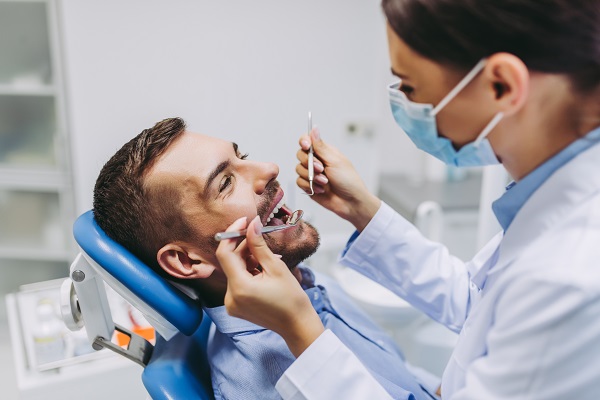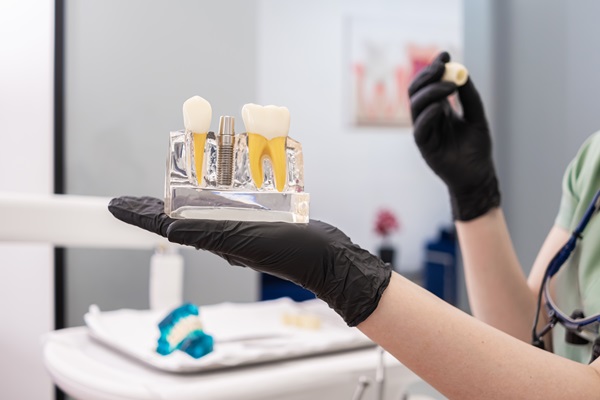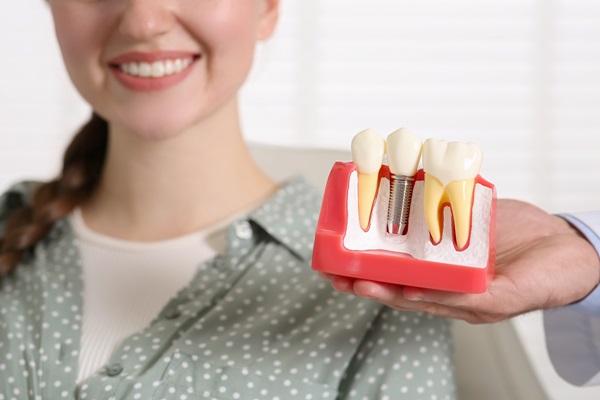An Oral Surgeon Lists Common Reasons for Tooth Extractions

An Oral Surgeon is trained to complete a number of different procedures, most of them with the goal of saving your natural tooth. However, when a tooth is past saving, extraction may be necessary. An extraction is the removal of a tooth by an oral surgeon. Most extractions are due to medical reasons, although restorations and replacing bad teeth also have cosmetic benefits.
There are two types of tooth extraction: simple and surgical. Simple extractions are usually performed on a tooth that is visible in the mouth (above the gumline) and is done under local anesthesia. Surgical extractions are performed when the tooth is not easily accessed. Surgical extractions are usually done on teeth that have not yet erupted or when the tooth has broken underneath the gumline.
Extractions are generally the last option, considered only as a solution after all other courses of action have been attempted in saving the tooth.
Common reasons for tooth extractions
Tooth damage due to decay
When tooth decay reaches the center of the tooth (known as the pulp), the tooth begins to slowly die. If this infection cannot be cleared by root canal therapy, it cannot be saved. The tooth must be extracted so as not to infect the jawbone or surrounding teeth.
If a tooth is not extracted and replaced with an artificial tooth when it has died, a domino effect begins to unfold. Surrounding teeth begin to move toward the weakened tooth to try and fill that role, causing bite issues and spreading the infection.
Infection to remove an impacted tooth
Wisdom teeth are infamously known for often needing extraction. If these adult molars have not emerged by age 18, removal is usually necessary. If any impacted teeth are not removed, they can easily become infected. That infection can then spread into the bloodstream, with dangerous implications.
A solution for advanced periodontal disease
Gum disease is more than just a nuisance. In its earliest stage as gingivitis, periodontal disease causes little more than bleeding gums and tooth sensitivity. But as the inflammation progresses, it can start to affect the ligaments and bone in the jaw. Periodontal disease starts from the formation of plaque at the gumline. Bacteria in the mouth builds up after eating and begins to attack the teeth and form into plaque. This bacteria can be removed by brushing and flossing.
Unfortunately, severe cases of periodontal disease can cause teeth to loosen. The gums support the teeth and keep them safe from harmful debris, but they also hold them in place. Periodontal disease causes the gums to recede, exposing the tooth and making it loose. At this point, the tooth must be extracted and replaced to prevent further gum disease and destruction of bone.
In combination with orthodontic treatment
To achieve a straight smile, an oral surgeon may recommend pulling teeth. Complicated bite problems, like crowded teeth, protruding front teeth and a narrow palate even after the use of palatal expanders, can be cause for extractions. Strategically removing teeth from the back of the mouth makes more room for the front teeth. Sometimes, extractions are necessary for successful orthodontic treatment.
Let's get started
Request an appointment here: https://www.drjstearns.com or call Platte Valley Oral Surgery at (303) 997-0220 for an appointment in our Denver office.
Check out what others are saying about our dental services on Yelp: Oral Surgery in Denver, CO.
Recent Posts
Clinical studies show that the dental implant remains the gold standard of dental restorations. Implants can help bring back your smile and dental function. The right dental professional can perform the procedure without any issues. Here are the details on how an oral surgeon approaches a dental implant surgery.Choosing a dentist who has training and…
A missing tooth must get a tooth replacement as soon as possible. An untreated dental gap can contribute to many dental issues. That is why a dental replacement is important. Here are the details on how a tooth replacement can improve your smile.An oral surgeon understands how tooth loss can affect a patient. A tooth…
Learning what an oral surgeon does is a great idea. There are many different types of dental professionals in business, making it necessary to understand the differences between each type of professional. When it comes to oral surgeons, they tend to focus on correcting dental problems using one or more surgical processes.Consultation appointments with oral…
An oral pathology must receive immediate treatment. This can prevent more complications later on. Your oral surgeon can help correct any dental problem. Here are the details about each common oral pathology and its corresponding treatment.This oral pathology results from a bacterial infection because of plaque buildup. Symptoms of this condition include gum bleeding and…


